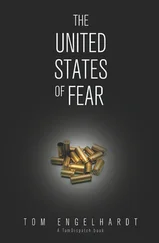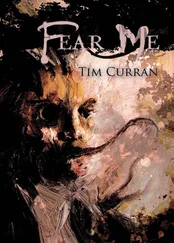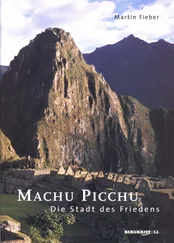There was one drawback, of course. He was a Negro.
Negroes did not appear onstage at that time, unless perhaps at some abolitionist meeting. To have a Negro appearing with a white troupe was unheard of — for that matter, against the law. Presenting him could easily get us closed down. One would have to think of some subterfuge, if one were even to attempt it in the first place. There was also the question of my partner, who was nothing if not proud of his own abilities on the banjo. In any case, before any of that, I would need to find him again.
I finally saw him some weeks later, playing outside the Black Horse Tavern. A crowd spilled out from under the awning that overhung the sidewalk, and two boys had climbed into the branches of an oak tree in the little park across the street in order to have a view. I was determined not to let my attention be distracted, even if a building were to collapse behind me. This time I would talk to him.
I approached the crowd’s edge and stood on my toes to see. He leaned against the wall in the shade and wore an expression of grave and comic unconcern as he played and sang.
Said the blackbird to the crane,
When do you think we’ll have some rain?
The pond’s so muddy and the creek’s so dry,
Wasn’t for the tadpole, we’d all die. .
He ran through several songs—“Mary Blaine,” “Dan Tucker,” and one or two others from the familiar repertoire. His singing voice was better even than I remembered; it alighted on syllables and bent them downward as an ornament might bow a tree branch, and he endowed unexpected words with a sparkling glow. His banjo playing was full of trap doors and tunnels; it galloped, jumped and turned, stopped, and doubled back. He had a number of songs with lyrics I had never heard, which seemed to carry a veiled significance. One went:
My old mistress had a dog
Blind as he could be.
Every night around suppertime
That old dog could see.
My old mistress had a cow,
I know the day she was born.
Took that old jaybird thirteen years
To fly from horn to horn.
In between songs, tuning his banjo, he seemed to register my presence — fleeting, but I thought I saw him mark me. Was it possible that he remembered my face from the previous occasion? All the while, he kept up a line of patter full of teasing and possibility, personalities assumed for thirty seconds and abandoned for others.
“And now, a song from my native land— Spain .” General hilarity as he looked around in feigned affront. “ Que paso? ” he exclaimed. “ Pues no encuentro la maquineta de todos los postales y cuatro ramitos enchiladas . .” and so on, a fusillade of iridescent gibberish, pidgin Spanish that sent the crowd, myself included, into spasms of laughter. Plucking the strings in a deliberate habanera rhythm, he commenced singing,
Soft o’er the fountain,
Ling’ring falls the Southern moon.
Far o’er the mountain
Breaks the day, too soon. .
. . and everyone quieted down, entered the dream of the far-off border town, the doomed romance.
It was extraordinary. At one point I had to shake my head and look down at the cobblestones, with their mottled gray surface, the stains from the wine-seller’s, and scuff my shoe back and forth to remind myself that there was a physical world outside the imaginary one he was summoning.
He finished and announced that he would take up collection. I kept my eyes on him as I made my way through the other listeners. When I was near enough to be certain I would not lose track of him, I hung back and waited for the last of his subscribers to make their donations, and then I approached.
He was replacing his banjo in a canvas carrying sack as I drew near. I had the sense that he was aware of my hovering, although he gave no acknowledgment. Behind him, the outline of the bricks on the side of the Black Horse Tavern were visible through a freshly painted advertisement for Bigelow’s Bitters, with its smiling monkey; I was aware of a cart passing behind me, the mule’s hooves making a sound like Powell clopping his coconut shells. I waited for him to acknowledge me, but he didn’t. Finally he hefted his banjo in its sack and turned as if to leave, and I called out, “Hello!”
At this, he stopped and turned to regard me. Although we were the same height and size, he gave the impression of looking at me from above. He said nothing.
“May I speak with you a moment?” I said.
“You are speaking,” he said.
“Of course,” I said. “But. . please. May I buy you a pint, inside?”
“I’m comfortable here,” he said. “What do you want?”
His face and the backs of his hands were the color of copper, and his eyes were green, with long lashes. With a little art, he might almost have been able to pass for a white man, a Spaniard, or certainly a Hindoo at the least. I introduced myself and rushed into a confused oration about my admiration for his skills. As I spoke he glanced past me, and around us, at the activity behind me on the street, then back at me. I watched him measure my mode and quality of dress, the degree of animation in my face, my way of placing myself, even, on the sidewalk, and I saw him come to the end of what he could discover, as I continued chattering about his banjo prowess and command as a performer. I had the distinct sense that I was quickly running through my allotment of his available attention.
When, finally, I remembered to mention that I was a founder of, and performer with, the Virginia Harmonists, he stepped into the middle of my words and said, “Are you from Virginia?”
“Well, no,” I said. “It is only the name we chose.” I noted some small but distinct retraction in him. “What, by the way, is your name?”
“Ham Peggotty,” he said.
I gave an involuntary laugh at the absurdity of this. This was nobody’s name. God only knew where he had picked that up. “That is not your name,” I said.
“Is there anything else?” he said, as if to bring our interview to a conclusion.
“Well, yes,” I said, feeling a bit impatient, now. I was, in fact, irritated. I had just strewn superlatives around him like rose petals, and he was being incourteous, to say the least. “I would like to talk to you about the possibility of incorporating you into our performance in some way.”
Now it was his turn to register my absurdity. He smiled for the first time, but more in mockery than in mirth. Once again he glanced around the streets, quickly. “I am not disturbing the peace,” he said. “I am a free man, and I will defend myself.”
“What do you mean?” I said.
He began backing away, keeping me in view.
“Wait!” I said. “What is wrong with you? I have a proposition for you.”
He stopped ten yards away, by the entrance to the alley behind the Black Horse. I watched him look down the alley and make some signal with his hand, nod, and then turn back to me.
“State it quickly,” he said.
“I would like to find a way of using your talents in our show,” I repeated. “We perform every night but Sunday at Barton’s Minstrel Theater, on Arch Street. You can see for yourself if you don’t believe me.”
“I have seen the handbills.”
“Well, then. .”
“How do you propose to present me on a stage in Philadelphia? You would be shut down.”
“I do not know yet.”
He regarded me for a long moment, looked up and down the street again.
“What position do you play in the line?” he said.
“I am on the end, with the bones. I can also play the banjo and the tambourine. You would not want to hear me play the fiddle, I’ll promise you that.”
Читать дальше










